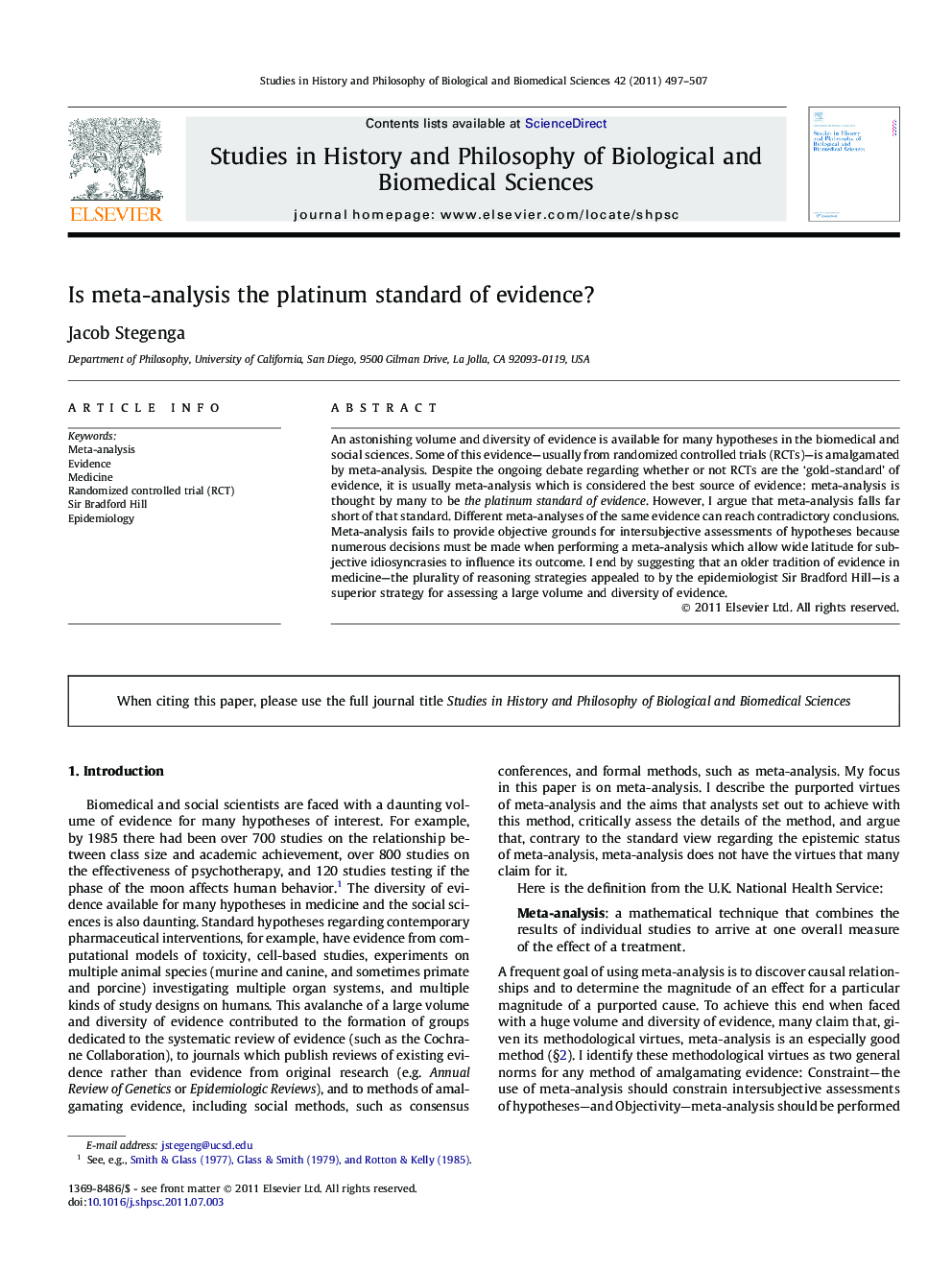| کد مقاله | کد نشریه | سال انتشار | مقاله انگلیسی | نسخه تمام متن |
|---|---|---|---|---|
| 1161990 | 1490532 | 2011 | 11 صفحه PDF | دانلود رایگان |

An astonishing volume and diversity of evidence is available for many hypotheses in the biomedical and social sciences. Some of this evidence—usually from randomized controlled trials (RCTs)—is amalgamated by meta-analysis. Despite the ongoing debate regarding whether or not RCTs are the ‘gold-standard’ of evidence, it is usually meta-analysis which is considered the best source of evidence: meta-analysis is thought by many to be the platinum standard of evidence. However, I argue that meta-analysis falls far short of that standard. Different meta-analyses of the same evidence can reach contradictory conclusions. Meta-analysis fails to provide objective grounds for intersubjective assessments of hypotheses because numerous decisions must be made when performing a meta-analysis which allow wide latitude for subjective idiosyncrasies to influence its outcome. I end by suggesting that an older tradition of evidence in medicine—the plurality of reasoning strategies appealed to by the epidemiologist Sir Bradford Hill—is a superior strategy for assessing a large volume and diversity of evidence.
► Meta-analysis is a widely used technique in medicine and the social sciences.
► Different meta-analyses can reach contradictory conclusions.
► Numerous judgments must be made when performing a meta-analysis.
► Meta-analysis fails to provide objective grounds for belief.
Journal: Studies in History and Philosophy of Science Part C: Studies in History and Philosophy of Biological and Biomedical Sciences - Volume 42, Issue 4, December 2011, Pages 497–507